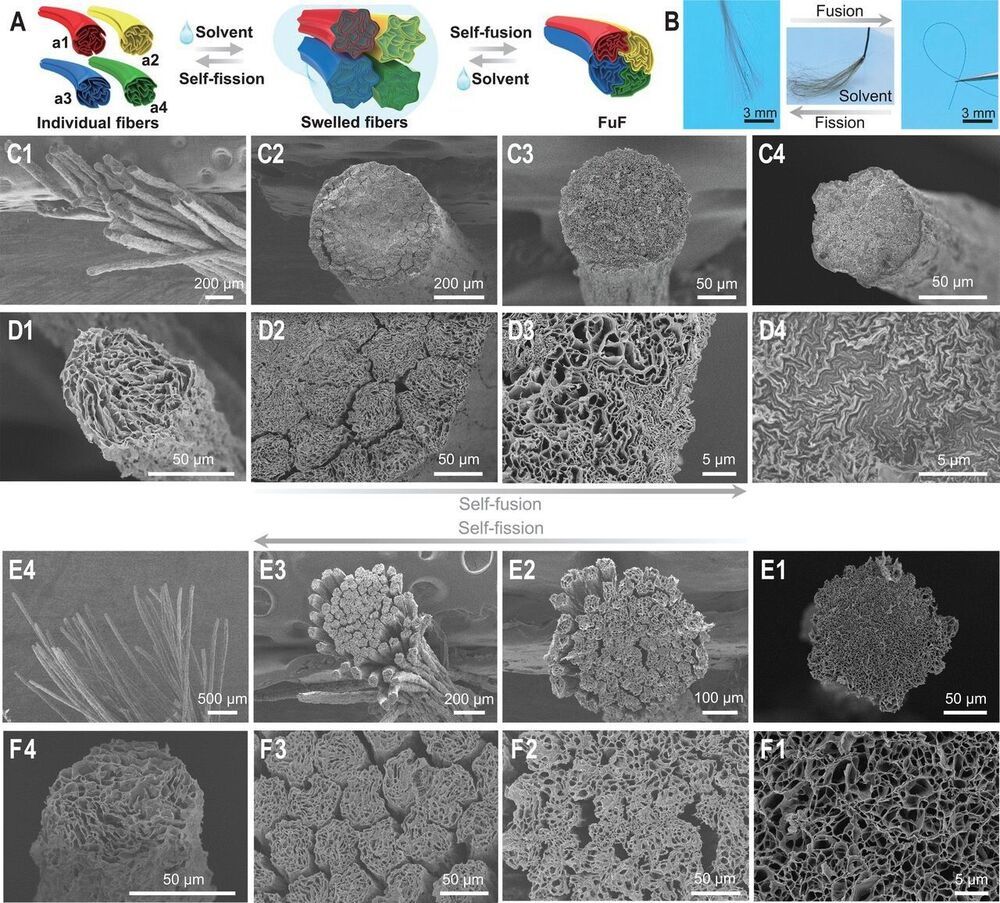A team of researchers from Zhejiang University, Xi’an Jiaotong University and Monash University has developed a way to bind multiple strands of graphene oxide into a thick cable. In their paper published in the journal Science, the group describes their process and possible uses for it. Rodolfo Cruz-Silva and Ana Laura Elías with Shinshu University and Binghamton University have published a Perspectives piece in the same issue outlining the work by the researchers and explaining why they believe the technique could prove useful in manufacturing efforts.
In recent years, materials scientists have been exploring the possibility of making products using total or partial self-assembly as a way to produce them faster or at less cost. In biological systems where two materials self-assemble into a third material, scientists describe this as a fusion process, borrowing terminology from physics. So when a single material spontaneously separates into two or more other materials, they refer to it as a fission process. In this new effort, the researchers have developed a technique for creating graphene-oxide-based yarn that exploits both processes.
The work by the team is very basic. They created multiple strands of graphene oxide and then dunked them into a solvent solution for 10 minutes. When the strands were pulled from the solution, they banded together forming a cord, or single strand of yarn. They also developed a means for reversing the process—dunking the strand of yarn in a different solvent solution.









Comments are closed.